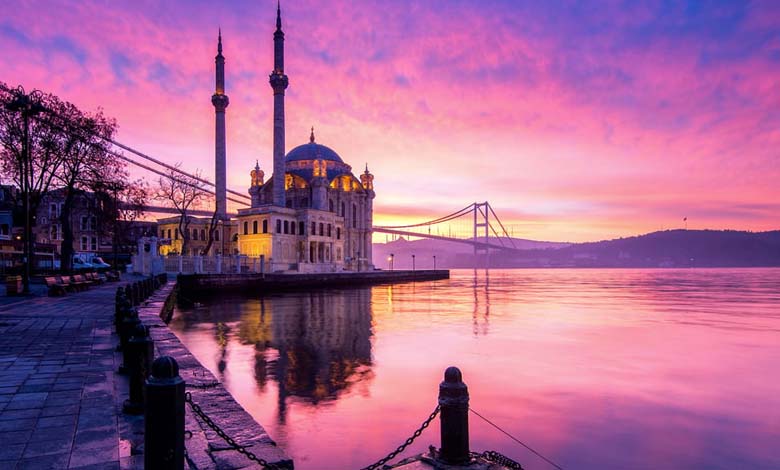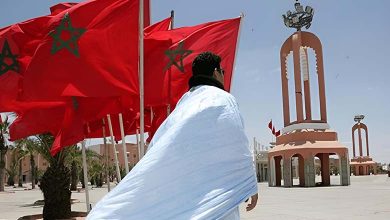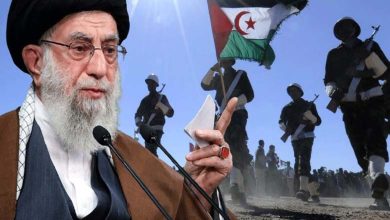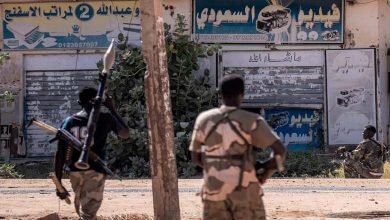From Istanbul to Rome: The Brotherhood Seeks Control

At the end of 2012, the former Italian Minister of Defense, Ignazio La Russa, the general coordinator of the “People of Freedom” party, decided to break away from the party led by Silvio Berlusconi. Shortly thereafter, another split led by Giorgia Meloni, gathering the right-wing faction that included former members of the “National Alliance” party, which in turn was built on the ruins of the fascist “Italian Social Movement” that considered itself the legitimate heir of the fascist party founded by Benito Mussolini.
Just one week after this double split – which later turned out to have been coordinated between the two sides – the two dissident movements decided to form a single parliamentary bloc comprising 10 members in the Senate and to contest the legislative elections the following year under the name “Brotherhood of Italy,” or “Fratelli d’Italia.” This name, chosen by Meloni, was taken from the first line of the Italian national anthem, composed in the mid-nineteenth century after the unification of Italy by Giuseppe Garibaldi.
Beginning of “The Brotherhood“
In those elections, won by a coalition of left-wing parties led by the Democratic Party with an overwhelming majority, the “Brotherhood of Italy” only obtained 9 seats in the Senate and 11 seats in the Chamber of Deputies. Consequently, the party remained for years a secondary force on the margins of the right-wing coalition led by Berlusconi before joining it, the “League” party (formerly separatist), whose activity was limited to the northern provinces and was initially founded with the aim of demanding their independence from Italy.
Later, in the 2018 elections, the “Five Star Movement” won first place, followed by the “League” party led by Matteo Salvini, aspiring to lead the right-wing camp whose leadership banner had been tied to Berlusconi for years, while the “Brotherhood of Italy” obtained only 4.3% of the votes. Thus, the party remained a secondary player in the political landscape, while Salvini determined his right-wing agenda from his position as Minister of the Interior and Deputy Prime Minister in the government resulting from the coalition between the “League” and the “Five Star Movement”… whose presidency was entrusted to Giuseppe Conte, a law professor, despite his lack of affiliation with the movement and membership in parliament.
Mario Draghi’s Government
When Conte’s second government fell after an unsuccessful maneuver by Salvini to withdraw ministerial confidence – one of its most prominent members – in order to provoke early elections that he was likely to win, President Sergio Mattarella did everything to convince former European Central Bank governor Mario Draghi to accept forming a broad coalition government. The president’s goal was to avoid general elections at the height of the Covid-19 pandemic and the sharp political divisions that threatened to deprive Italy of its lion’s share of the recovery fund, approved by the European Union to help member states recover from the pandemic fallout.
When Draghi imposed his conditions for forming a coalition government involving all parliamentary factions and committing to supporting the government program, and the “League” agreed to join the new cabinet, pledging not to hinder its work, Giorgia Meloni, leader of the “Italia Brotherhood,” realized she had an opportunity to increase her popularity among the many resentful of the failure of traditional political parties to agree on appointing a prime minister from within parliament, and to resort – for the third consecutive time – to choosing a figure who had never contested an election or held a public office.
– Leadership of the Right Opposition
Therefore, Meloni refused to join the coalition government comprising all parliamentary factions. Her party, the “Brotherhood of Italy,” remained alone in opposition, criticizing the government, which initially enjoyed widespread support but quickly saw its popularity wane due to deep contradictions and conflicts of interest within the parties that composed it.
Meanwhile, the popularity of the “Brotherhood of Italy” continued to rise in opinion polls, and Meloni outpaced leaders of other parties, especially Salvini, who failed repeatedly in his attempts to create a union of right-wing forces and parties excluding Meloni. He realized that she alone posed an imminent threat to his popularity and leadership on the right-wing stage, which was steadily moving towards victory in the next legislative elections.
As for Meloni, after realizing the rise in popularity of her party and surpassing “League” in all polls, she decided to run alone in the municipal elections held last Sunday, refusing to ally with other right-wing forces, even in strongholds where the alliance’s victory was assured. The results confirmed the correctness of the choice of the “Brotherhood of Italy,” who alone won results equivalent to those of the other right-wing parties combined. Thus, the party consolidated its position at the forefront of the right-wing scene, paving the way for Giorgia Meloni to the presidency of the government after the upcoming elections… to become the first woman to hold this position in the history of Italy.
Popular Mood… and Ukraine
The significance of these municipal elections, held about a year before the general elections, lies in determining the popular political mood, often aligning with the subsequent legislative election outcomes. While all political parties have acknowledged that the new fascists, led by Meloni, are now within arm’s reach of the presidency of the Republic, which was established on the ruins of the fascist regime – banned by the Italian constitution and prohibited from defense – Salvini now attempts to ignore this new reality. This is despite the fact that the “Brotherhood of Italy” party has increased its popularity in all the strongholds of the League, and it is no longer excluded that it may withdraw to the northern provinces, as demanded by traditional leaders whom Salvini had sidelined after assuming leadership of the party… and his decision to expand into all Italian regions.
After these elections, the maneuvering space for the leader of the “League” has become very limited, especially since Meloni is active on the same field and with the same tools that allowed Salvini to gain popularity and ascend in the past years… such as anti-immigration and anti-Islamic slogans, as well as refusal to comply with the will of European institutions and the global financial system.
Additionally, Meloni has been successful in her positioning regarding the Russo-Ukrainian war. She has supported the stance of Western allies and called for providing Ukraine with the weapons it needs to confront the Russian invasion, while Salvini pays the price for his close ties with Moscow and his statements expressing admiration for Russian President Vladimir Putin. It is worth noting that Salvini once entered the European Parliament building wearing a shirt with the image of the Kremlin leader, a reminder given to him by protesters who were demonstrating against his recent visit to one of the Ukrainian displaced persons reception centers in Poland.
There is no doubt that Meloni’s stance on the Ukrainian war was the driving force behind the American Republican Party’s choice to invite her to attend its recent election rally and deliver a speech, at the expense of Salvini who had expressed admiration for former President Donald Trump and had announced his support for his re-election.
– Questions… and Concerns
In any case, the question now raised in European circles, which are closely monitoring the rise of right-wing extremist forces and parties, and fear the possibility of new fascists coming to power in Italy, is as follows: what is the real affiliation of the fascist legacy in the program of “Brotherhood of Italy”… and the ability of this party – or its readiness – to undermine the foundations of the European project from within in a powerful country like Italy?
Democratic societies are facing increasing difficulty in dealing with fascist surges, or “new fascisms”, as they feed on the clash between the right to freedom of expression and the equally legitimate right of society to protect itself from extremist and violent movements that ultimately aim to undermine the democratic system to reign over its ruins.
Indeed, many European countries have been experiencing a “revival” of these movements and currents for years, which exploit the difficult economic and living conditions resulting from crises such as the financial collapse of 2008 and the Covid-19 pandemic, and often participate in protest demonstrations in line with their demands. It is worth mentioning that the Italian Constitution prohibits in its article 12 the reconstruction of the fascist party, founded by Benito Mussolini in 1921 and whose legacy remains among the darkest pages of Italian history. This constitutional provision is not just an “intentions statement” aimed at turning the page on the fascist past, but it is also a means to defend the democratic regime established in Italy after World War II, excluding any legitimacy to any party that uses or threatens to use violence to achieve its political goals, and prohibiting the use of any fascist symbols.
– Fascism: Offspring of Crises
Of course, today’s world is different from what it was in the first three decades of the last century, which witnessed the emergence and flourishing of fascist movements, from “Mussolini’s Italy” to “Hitler’s Germany,” “Franco’s Spain,” and “Salazar’s Portugal.” However, many do not forget that these movements emerged from economic and social conditions that closely resemble the current conditions resulting from successive crises culminating in the Covid-19 pandemic before the outbreak of war in Ukraine. These were fertile conditions for the growth of extreme right-wing movements to reach power and start implementing their racist programs and plans with broad popular support. Additionally, the migration crisis that has been plaguing Europe for years has greatly contributed to the rise in popularity of extreme right-wing parties that were very marginal before, and some of them have even reached power in coalition governments.
“Brotherhood of Italy” realize that what was possible in Europe in the early twentieth century is now impossible to market to gain power in European Union countries, whose treaties set binding conditions for political action and respect for human rights and judicial powers. This has pushed the far-right party in recent months towards a more moderate program – both domestically and internationally – when it realized it was within arm’s reach of leading the right-wing political scene and accessing the presidency of the government after the next general elections. In this context, Salvini recently attempted to exclude “Brotherhood of Italy” from a project to form an alliance comprising conservative parties and forces, arguing that it was the only party outside the government, which would allow the alliance to adopt unified positions on government performance, and agreeing that the party winning the highest percentage in the next elections would assume the presidency of the government.
However, Berlusconi, who still refuses to even consider a successor, hesitated to respond to Salvini’s call, while Meloni’s popularity rose in opinion polls, especially at the expense of the leader of the “League,” until her presence in the alliance became inevitable and her chances of leading it after the elections were significant.
While Salvini leans towards further extremism to regain his declining popularity, Meloni leans more towards moderation, thus attracting increased support among supporters of the “Five Star Movement,” which began to crack under the weight of internal disagreements and conflicts between various currents within it. Additionally, Meloni is now steadily approaching the centers of economic and financial decision-making, which have never been comfortable with the hostile positions expressed by Salvini towards the European Union and its institutions… which the Italian economy cannot do without their assistance.
Symbolism of Milan… in Georgia Meloni’s Calculations
Georgia Meloni chose to “introduce the new identity card” for her party at the recent conference held earlier this month in Milan.
Behind this choice lies a highly visible and challenging symbolism, not only because Milan is the economic capital of Italy, but also because it is the birthplace of both Matteo Salvini and Silvio Berlusconi, and their political stronghold. In this city, the popularity of “Brotherhood of Italy” has seen a significant rise recently, even though its roots were in Rome and its origins in central and southern Italy. Faced with the continuous collapse of the “Forza Italia” party, whose leader Berlusconi refuses to choose a successor despite being over eighty-five years old, and the rapid decline of the “League” and its lack of a clear ideological direction after the serious mistakes made by Salvini, Meloni alone has emerged as capable of leading the right-wing scene. She practically tells her allies that if they want to reach power through an alliance, they must keep up with her… and she alone is in the leadership position.
However, the problem here is that relations have deteriorated significantly in recent months between the parties of the right-wing alliance, especially after conflicting positions during the presidential election, and their divergence over the war in Ukraine and the continued supply of weapons to Kiev. The disagreement is likely to deepen further after Moscow’s decision to use gas, on which the Italian economy relies heavily, especially since the “League” has repeatedly hinted at the need to stop the series of European sanctions against Russia, with Salvini even offering to go to Moscow to mediate.
Therefore, Berlusconi has been seeking to mitigate the disagreements within the alliance in recent days, as its cohesion, unity, and presentation of joint lists are essential steps in the upcoming elections, given the electoral law based on the majority system, which rewards major parties and alliances at the expense of small parties and individual lists.
Because Meloni is interested in solidifying her overcoming of the “League” party as much as she is interested in overcoming the Democratic Party (one of the strongest components of the left), to make “Brotherhood of Italy” the largest bloc in parliament, she has been working for some time to marginalize the extremist pockets that still yearn for their fascist roots, or to isolate them. She had decided for the first time in the history of the “new fascists” to participate in the national holiday celebrated by Italy on April 25th, commemorating the liberation of the country from fascism and Nazism.












